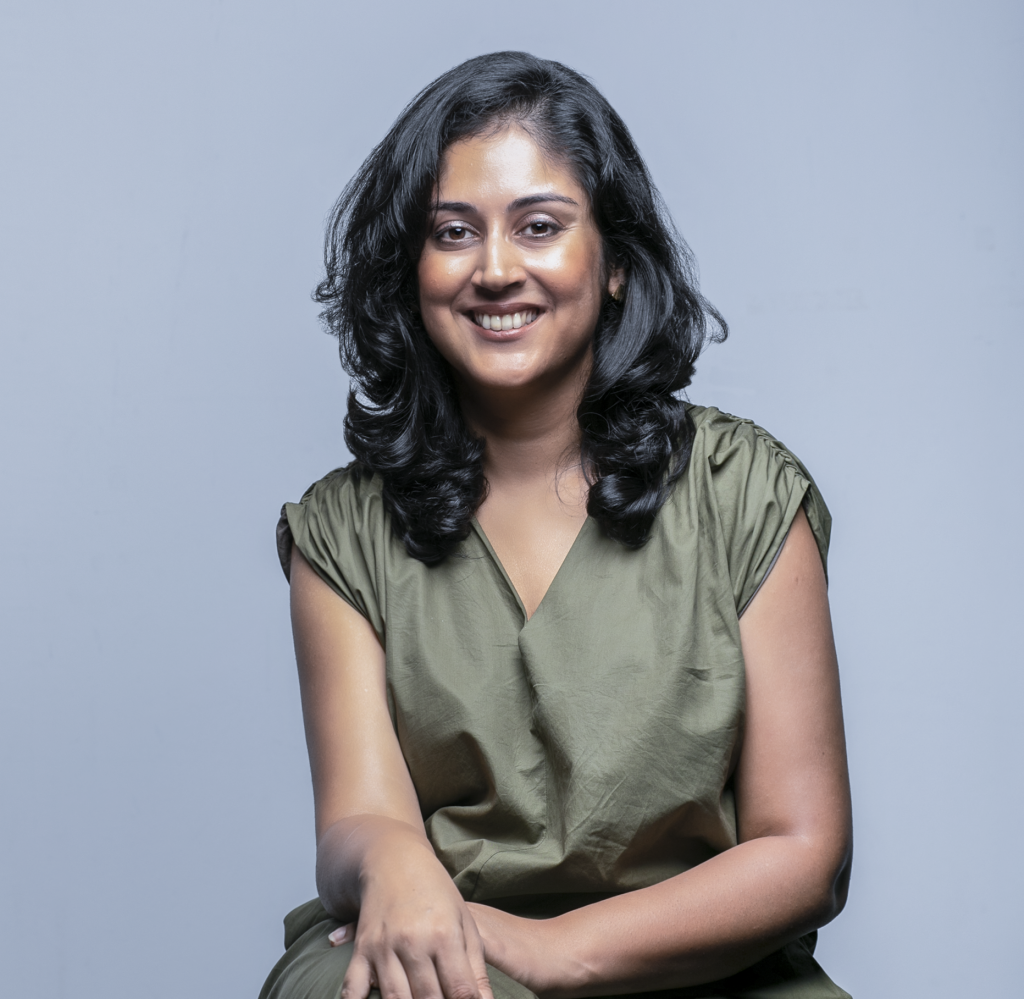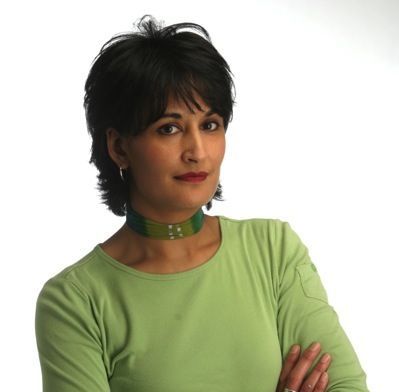Inspiring new generations of Australian South Asian Writers | Event Recap Part 1
Have you ever wanted to write a book that reflected your experiences as a South Asian woman? You might have noticed there aren’t that many books written by female Australian South Asian writers at your local bookstores.
The Australian South Asian Centre (ASAC) wants to change that. Last week, ASAC invited three talented writers to share their experiences writing professionally. They generously shared their journeys, industry insights on navigating challenges in these spaces, and how we can create our own opportunities.
The talented writers we heard from were:
- Sushi Das, RMIT ABC Fact Check’s Chief of Staff, award-winning journalist and author of Deranged Marriage;
- Balli Kaur Jaswal, academic and award-winning, international best-selling author of 4 books including Sugarbread, Erotic Stories for Punjabi Widows; and
- Alicia Vrajlal, Refinery 29 Australia’s Culture Editor, former Editor at HuffPost Australia, Yahoo and Daily Mail. Alicia is the founder of the blog, Draw Your Box, highlighting diversity-related stories in Australia and beyond.
The event was attended by 187 attendees from across Australia, India, the United Kingdom and Singapore and was moderated by ASAC Co-founder, Daizy Maan Kaur, who also provided insights on her publishing journey with her upcoming memoir, Quarter-life Crisis.



Key panel takeaways:
Choose your publisher wisely
On choosing between large publishing houses, independent publishers, or self-publishing many pros and cons were shared, but, ultimately, the path you choose will be determined by your priorities. For example, do you want complete creative control over the editing and marketing process? Self-publishing may be the way to go. Want to be traditionally published, but have more flexibility with how decisions are made? Smaller, indie publishers might be the right fit for you. Large publishers are a valid option too, however depending on what you’re publishing they may not suit your needs. Balli and Sushi shared their perspective on this topic and how it impacted their publishing journey.
Sushi described her publishing experience with a large publisher as ‘good and uncomfortable at the same time,’ and explained that she didn’t approach a publisher, a publisher approached her after writing a newspaper column. Sushi has wondered whether she would have had a different experience with a smaller publisher.“I have a number of regrets,” she said frankly, “I wish I had given myself more time and had been more forceful and asserted more of what I wanted … But I think the journey, overall, was interesting.”
In contrast, Balli shared her experience with a smaller publisher, “My first novel, Inheritance, was completed while I was living in Melbourne. I approached Australian publishers, and a small publisher took a chance on it. I say, ‘took a chance’ because other publishers had viewed it as ‘too marginal’ of a story. I certainly didn’t feel that way. [My publisher] treated it with a lot of respect.”
Sushi said, “I wasn’t sure if the publisher was always tuned into the nuances of my story or what I was trying to get across. I appreciate that publishers want to run a profitable business, but for an author writing a memoir, the product is very personal. It’s your unique story and it’s often painful to write and publishers should make an effort to appreciate this.”
Daizy shared another perspective, “I think it’s better to self-publish and learn marketing, than to never have a book published, so don’t write-off this way of getting your work out there. Sometimes the industry catches up after they realise there’s a market for it.”
Complete your manuscript
Balli encourages emerging authors to complete draft manuscripts before approaching publishers.
She said, “[Some people think you] can approach a publisher with a couple of chapters, and if they want to publish it, then you go off and write the book. There’s a romantic notion out there that you can do that. No, you have to do the work […] write the whole book first, and then approach publishers.”
Balli said, “I suggest to new writers, even when you think you’re done and it’s perfect, take [your manuscript] to an editor that you will have to pay for. Take it to a structural editor too. Writers Victoria has a great manuscript appraisal service that you can use.”
“Beta readers can also be very helpful,” according to Daizy, who has been using beta-readers in her writing process, “they read your book before it’s published and review it for free, however, they don’t edit it.”
Gatekeeping still exists in publishing, like all industries, there’s still a lot of work left to do.
Balli discussed how finding literary agents is an example of this when trying following a more traditional publishing path. “The bigger publishers, like the Big Five, require a literary agent, so you have to actually get through the literary agents first.” She also noted the unique opportunity we have within the Australian publishing landscape “Australia has a lot of smaller publishers, which means that in a lot of cases, you can actually approach the publisher directly.”
Balli explained “Literary agents receive lots and lots of manuscripts. It’s very wise to make sure your manuscript is the best possible version it can be, so it’s essentially ready to be published. Of course, there’s an editing process [when working with a publisher] and it can be quite rigorous but [your manuscript] shouldn’t be a raw piece of writing. Publishers want to invest as little work as possible into it.”
The authors also acknowledged that gatekeeping can also show up after you have a book deal too, and it’s seen in the struggles authors face when business decisions are made that negatively impact how the writing is enjoyed by readers.
The magic of the South Asian Sisterhood
One of the greatest resources we have as South Asian women is the other girls and women who inspire and work with us to achieve our dreams. Alicia described a recent example of this sense of shared community when she contacted another South Asian creative about a piece she was writing, “I hadn’t even met her, we had briefly spoken on Instagram. I think it’s the power of the brown sisterhood. I thought ‘I’m just going to reach out and see if she’ll help a sister out.’ And more often than not, they are happy to help out.”
Alicia also offered advice for creatives wanting to expand their networks, “If there’s someone you look up to, who is South Asian, and is in a creative field you want to get involved in – reach out to them! Especially, when we’re working towards a common cause. It’s more important than ever to not tear each other down, there’s space for all of us. We don’t need to be the only brown girl in the room, the more the better.”
The event’s opening and closing remarks were made by Michelle Wade, Global Victoria’s Commissioner – South Asia, and Vicki Treadell, British High Commissioner to Australia and previously British Deputy Commissioner in Mumbai, respectively. They acknowledged the large presence the South Asian diaspora has in Australia and the world and spoke to the themes of allyship, diversity and the importance of celebrating the uniqueness of our identities and our stories.
Our Opportunity for emerging writers
As part of the event, ASAC announced a special opportunity to receive industry feedback from South Asian women writers and authors for South Asian female writers based in India or Australia. Milee Ashwarya from Penguin Random House India briefly joined the event to help share this exciting news and will be one of the experienced editors offering feedback. Visit this post to learn more about this opportunity!
If you attended the event and would like to share your own reflections and connect with other attendees, use the hashtags #SouthAsianWriters and #SouthAsianHeritageMonth on Instagram and Twitter. This event was also the final event in the Australian Indian Digital Creative Festival.
Missed out on attending this event and want to be kept in the loop? Join ASAC’s mailing list or follow ASAC on Instagram.
Our Event Sponsors
A big thank you to our funding partner Australia India Youth Dialogue and event sponsors:
Our COMMUNITY Partners
Community Partners: The Indian Feminist, Young Sikh Professionals Network, Asian Woman Festival, SPARK Deakin, Bold Punjab and SolveSquad.
Media Partners: South Asian Today, Internash and The Lipstick Politico.



